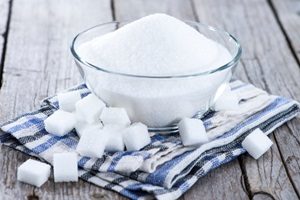
Reducing sugar intake to stay healthy
But all this sugar can be problematic. Not only does sugar lead to weight gain, but it can also play a role in the development of heart disease and most of all, diabetes.
Whether you’ve already been diagnosed with diabetes, or are just trying to cut back on your sugar intake to avoid the disease, it can be quite hard to lower your sugar consumption. By now, you probably know the difference between healthy sugars and fake ones, but you can still be overconsuming.
So if you’re trying to eat healthier or trying to keep your glucose levels under control because you’re diabetic, here are easy ways to simply cut down on your sugar intake.
Nothing is as simple as being an informed consumer. Knowing what you’re putting in your mouth can help you cut down on your sugar. Although there are many food items that contain their own sugars, it’s the added sugars over which you have the most control – that’s where labels come into play.
The American Heart Association (AHA) recommends keeping added sugars to about 100 calories a day for the average woman, and no more than 150 calories a day for men. This is roughly six teaspoons for women and nine teaspoons for men. These estimates are based on healthy American adults and differ from recommendations for people with diabetes. If you are a diabetic, your doctor can help recommend how much sugar you should be consuming.
When reading a food label, although it may list sugar, you also have to pay attention to the carbohydrates because those contain sugar as well. Just because a product is labelled “sugar-free” or “no sugar added,” its carbohydrates still contain sugar. Often labels will not include sugar alcohols, another source of added sugar. If you notice ingredients ending in “ol,” like sorbitol, this too is a sugar.
Sugar by any other name is still sugar
Sugar is merely one word, but has numerous aliases. In fact, there are about 57 different names for sugar! How can you keep track of what you’re eating if you don’t know the name? This is where you need to become better informed. Some alternative names that sugar goes by are:
- Agave nectar
- Brown sugar
- Cane juice crystals
- Caramel
- Corn syrup
- Dextran
- Diastic malt
- Ethyl matol
- Fructose
As you can see, sugar can disguise itself behind many different names, but it doesn’t mean they are that much different from each other. Knowing these alternative names can help you reduce your sugar intake.
Make easy cooking swaps
Ideally, the best way to control your sugar is to make your meals yourself. That way you know exactly how much, and what kind of sugar, is going into your meals.
If a meal needs a little sweetness you can still achieve it with other ingredients. Depending if it’s a savory or sweet dish, spices and other sweeteners are great options. Common swaps for sugar are:
- Honey
- Pure maple syrup
- Cinnamon
- Organic applesauce
- Unsweetened cocoa powder
- Lemon or lime
- Banana
You don’t need to lose flavor or sweetness just because you’re not using sugar. Other great spice examples are turmeric, cumin, vanilla, nutmeg and ginger. These will be sure to give your meal the kick it requires, minus the sugar crash.
The easiest way to consume unwanted sugar is through our beverages. Soda, ice tea, fruit juices, even our coffee all contain excess sugar. Minimizing the amount of sugar we drink is an easy way to cut down on our total daily sugar calories.
If you enjoy ice tea, make your own by steeping your favorite brew and sweetening it naturally with honey. Avoid soda, as it contains high amounts of sugar or dangerous artificial versions like aspartame. And even those store-bought fruit juices come with a warning: Not only do they contain the sugar naturally found in the fruits themselves, but companies add in additional sugar to preserve it.
So if you want to drink your fruits and veggies, juicing them at home is your best bet. We don’t realize how much sugar we consume when we drink it because it goes down so smooth and we feel hydrated. But even in liquid form sugar is no good.
Stick with it for a healthier you
At first it may seem difficult to cut down your sugar intake, but do it for your health and your body. If you’re a diabetic, cutting down your sugar intake is a must, and these simple tips can help you easily make the adjustment. By sticking with a plan and becoming more aware of how much sugar you’re taking in, you can enjoy healthy eating with healthy glucose levels as well.
In fact, once your body gets used to the change, you’ll find those overly sugar treats you once enjoyed don’t taste the same and actually come off too sweet. So stick with a plan and your body will adjust accordingly.
Related Reading:
Simple steps for preventing diabetes
We all know that diabetes is a disease where there is excess sugar in the blood. Why is it there? How can I prevent it? Why does everyone not get it? All good questions. And I’ll try and answer all of them here. Let me start by explaining the causes of diabetes without getting too technical.
Warning: One of the biggest risks that comes with diabetes
It’s truly alarming how so many people with diabetes – or at risk for diabetes – are unaware of the damage the condition can do to their eyes. It’s serious. In fact, if you don’t get your eyes examined regularly, it can lead to complete blindness…
Stride healthy: Foot care for diabetics
Diabetics have a lot on their plate. They’re thinking about blood sugar control, following their medication, exercising, watching their carbohydrates and eating right…..read more